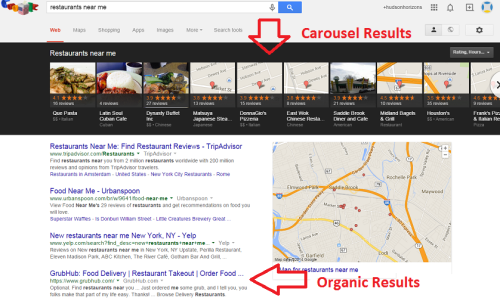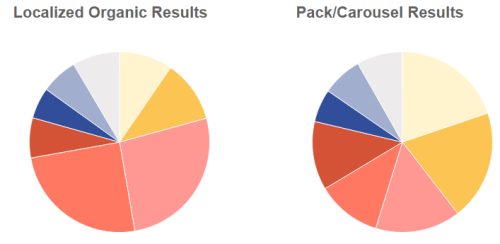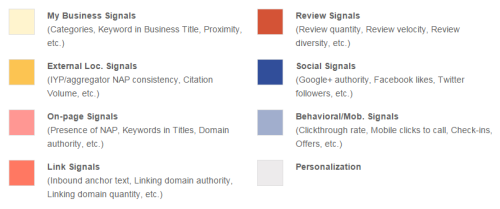You ever hear that business mantra, “It’s all about location, location, location”? Well, I’m here to tell you that it’s true.
Last week, I talked about how to clean up your backlinks in order to avoid any Google penalties. This week, I’m going to talk about local SEO – more specifically, how local SEO impacts your business success.
What is Local SEO?
Local SEO is the practice of optimizing your business’s Web presence in order to rank on local results and drive more foot traffic to your business.
In July, Google launched its latest local search algorithm update to English-US, named Pigeon. Now, I’m not sure why every algo update is named after a silly-looking animal (I mean, Pigeon? Penguin? Panda? What’s next – Porcupine?).
However, what I do know about Pigeon is that it’s aimed to improve distance and ranking parameters for local search queries. This means that results are hyper-localized to better reflect the searcher’s location in order to serve more relevant listings. In addition, directories like Yelp, Urbanspoon, and TripAdvisor saw an increase in rankings for local search queries.
Why is local SEO important?
Ranking well on local search results could mean the difference between driving new customers to your door or your sales remaining flat and stagnant. Don’t believe me? Here are some indisputable local SEO statistics to persuade you:
- 97% of consumers use the Internet when researching local products/services [tweet this]
- 77% of smart phone users contact a business after looking for local information [tweet this]
- 59% of mobile users who look for local information visit the business on the same day [tweet this]
Clearly, local search results greatly impact a consumer’s decision to visit your physical location. In addition, it’s becoming increasingly clear that optimizing your Web presence for mobile is an important factor, as people searching on mobile are more likely to visit physical locations after searching.
This makes sense though. Think about your own behavior. Say you’re trying to find a new restaurant, but you don’t feel like driving 30 minutes out. What do you do?
More likely than not, you would probably Google “restaurants near me,” and because Google is smart and knows everything, it already knows your location without you having to specify your city and will thus display local results relevant to your query.
You’ll probably see a result similar to this one:

So what’s the next step?
How can you improve your business’s local search rankings?
As you can see from just the example above, the main focus of a local SEO strategy is to rank well in Google Carousel and organic results, as those are the listings that appear in local search queries. In order to rank well on Carousel and organic search results, here are the factors that are most important in 2014.


So what does all this mean? Here’s a breakdown of what you need to start doing:
- Make your website local SEO-friendly: On-page factors like name, address, and phone number (NAP) at the footer and optimizing your meta data to reflect your locations factor heavily in local organic results.
- Create and optimize your Google+ profile: Although Google+ sometimes feels like that middle child everyone neglects, a verified local Google+ page is actually incredibly important in local searches as Google takes your location, pictures, and ratings from your page and displays it in the carousel and side results. Google+ pages and posts can also appear in local organic results.
- Clean up your citation listings: While directories are important in increasing referral traffic to your site as they tend to rank well in local organic results, listing your business in local directories is not the only way to boost your rankings. You have to make sure that your NAP is consistent in all your listings, as inconsistent information confuses both consumers and search engines. Enhanced listings, like adding your pictures, business hours, and a keyword-optimized description will also make your listing more compelling to consumers.
- Build up your customer ratings: In addition to the fact that a majority of consumers look at reviews before trying out a product or a service, search engines also take your rating into account when deciding the relevancy and authority of your business.
In conclusion
Looking good in search results takes a lot of time and commitment for you and your SEO team, requiring excellent customer service, brand rep management, and an active Web presence. However, using local SEO tactics to rank higher on organic results does work wonders in driving people to your physical location, thus increasing your on-site sales.